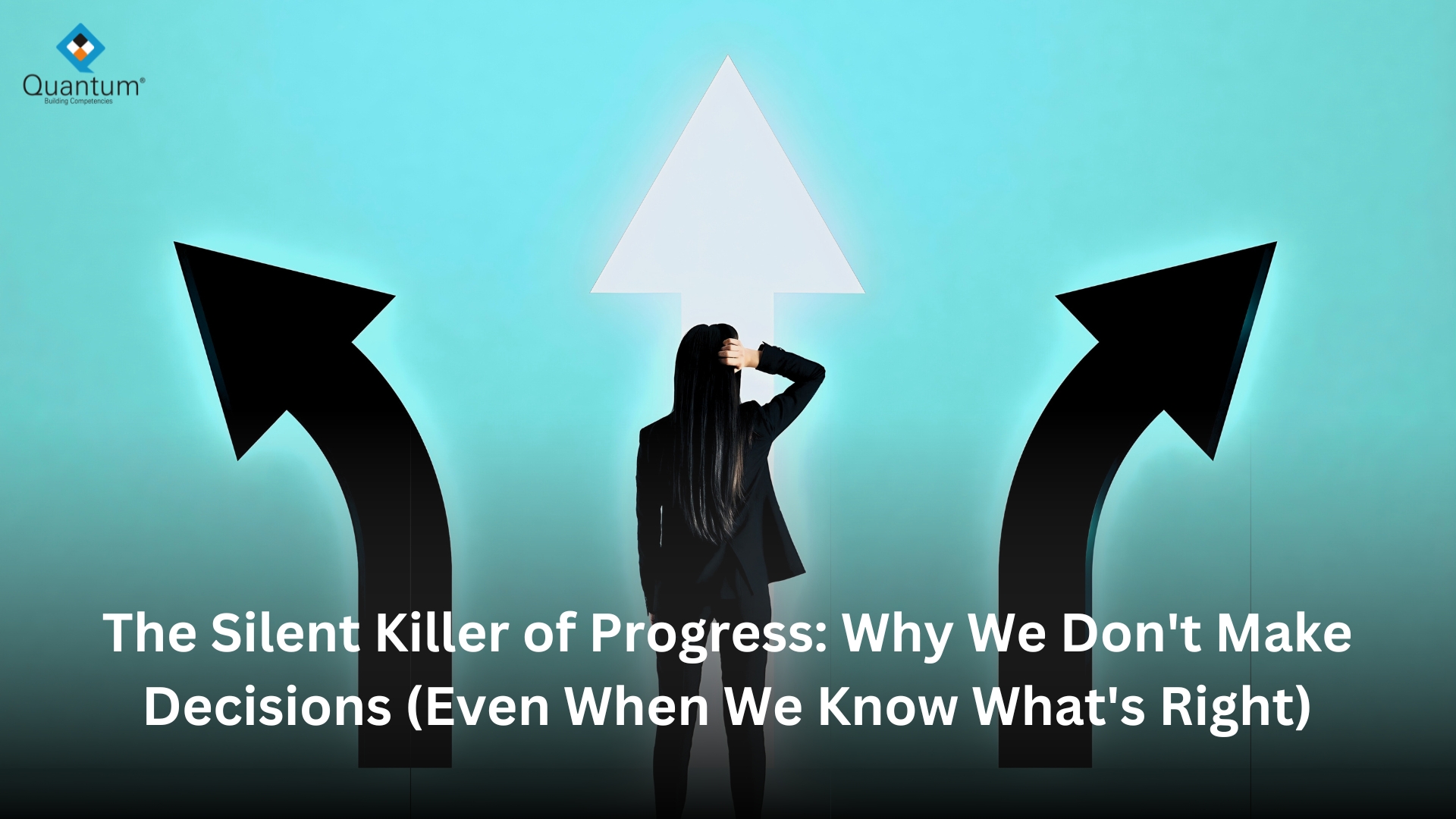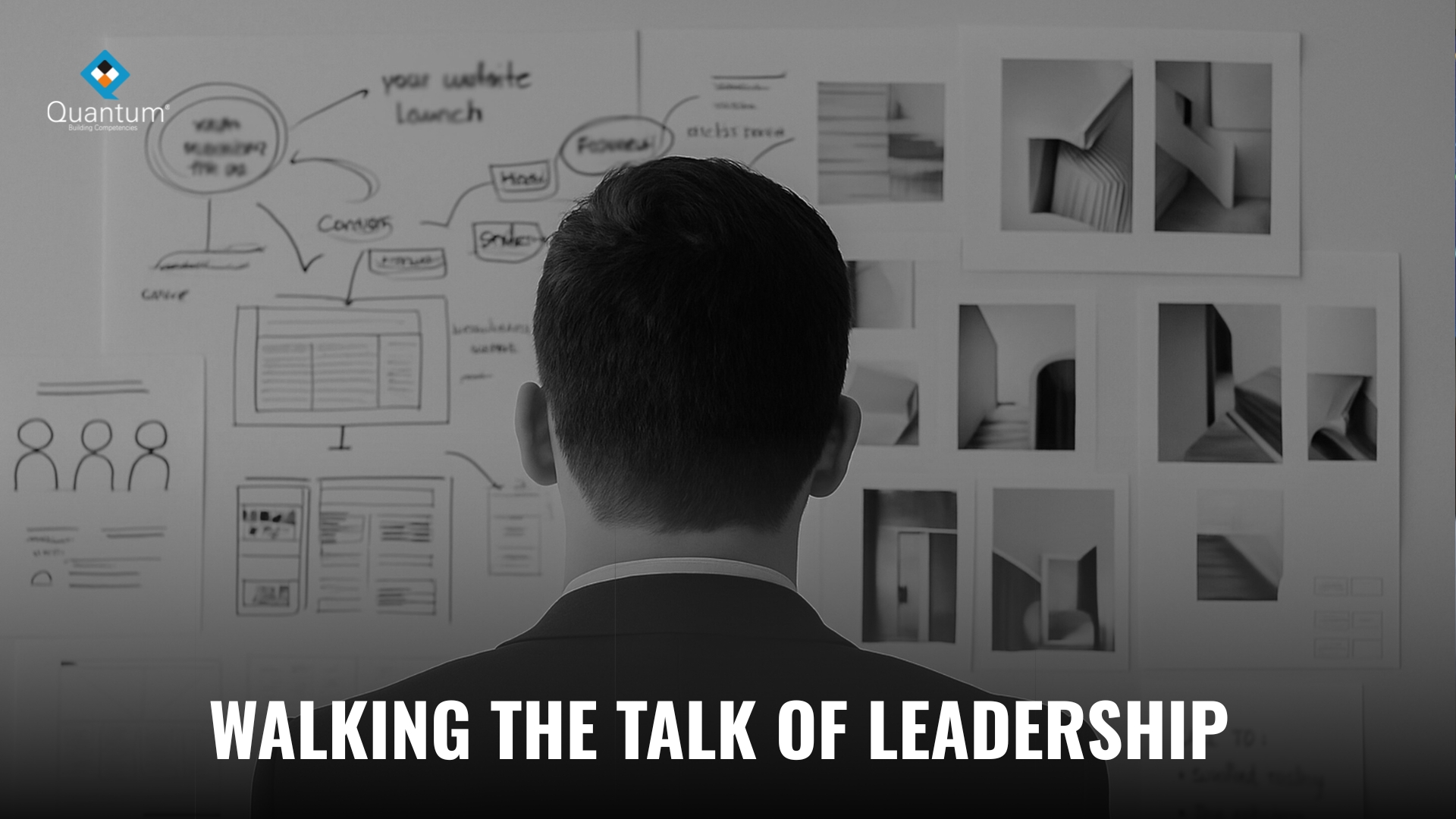
The Silent Killer of Progress: Why We Don’t Make Decisions (Even When We Know What’s Right)
The Monday Morning Meeting, Scene 1 CEO: “So, are we going to go ahead with the launch of the new
Preface
The COVID-19 pandemic has profoundly altered the work environment, hastening pre-existing trends such as remote work, digital transformation, and the integration of artificial intelligence (AI) in Human Resources (HR). The pandemic induced unparalleled disruptions, compelling companies to reevaluate their strategies for managing workforce dynamics, employee welfare, and operational efficiency. AI has emerged as a pivotal instrument in this new era, playing a crucial role in tackling post-COVID HR challenges.
This research article examines the challenges encountered by HR departments in the post-pandemic era and how AI can assist in surmounting these difficulties by optimizing recruitment, augmenting employee engagement, and refining workforce management. The research underscores apprehensions regarding ethics, data privacy, and employment displacement as human resources functions incorporate artificial intelligence technologies.
Challenges in Human Resources Following COVID-19
1. Remote and Hybrid Work Models:
The pandemic instigated a significant transition to remote work. As organizations evolve, the challenge now lies in managing hybrid work environments to ensure employee productivity, engagement, and collaboration among distributed teams.
Human resources professionals must navigate the intricacies of monitoring employee performance, guaranteeing equitable resource allocation, and preserving organisational culture within a hybrid work framework. A Gartner survey (2020) indicated that 82% of corporate leaders stated their organisations would persist in providing remote work options after the pandemic, highlighting the enduring aspect of this transition.
2. Recruitment and Retention of Talent:
The COVID-19 pandemic precipitated numerous disruptions in the global talent market. Mass layoffs, furloughs, and a change in employee priorities resulted in the “Great Resignation,” during which workers from diverse sectors voluntarily departed from their positions in pursuit of improved opportunities or work-life balance. Talent acquisition and retention have become progressively challenging as organisations vie for a restricted pool of highly skilled professionals.
Conventional recruitment techniques may falter in adapting to the changing job market, necessitating HR teams to utilise technology to attract and retain premier talent. AI can significantly modernise HR processes, mitigate biases in recruitment, and provide predictive insights regarding employee turnover.
3. Employee Welfare and Psychological Health:
The pandemic highlighted the significance of mental health in the workplace. The pandemic-induced stress, uncertainty, and isolation significantly impacted employee well-being. A 2021 report from the World Health Organisation (WHO) indicated that the global prevalence of anxiety and depression rose by 25% during the pandemic.
Human Resources departments now confront the challenge of fostering employees’ mental and emotional well-being, offering flexible work arrangements, and cultivating a culture of empathy and resilience. AI-driven tools can identify trends in employee well-being, proactively provide resources, and personalise support via virtual assistants.
4. Skill Enhancement and Redevelopment:
The swift embrace of digital technologies during the pandemic resulted in a heightened demand for new skills. Organisations currently confront the imperative of upskilling and reskilling their personnel to satisfy the requirements of a progressively digital landscape. Human Resources departments are tasked with identifying skill deficiencies, establishing educational trajectories, and facilitating ongoing development.
In a post-pandemic environment, organisations must adopt more strategic learning and development initiatives. Artificial intelligence can significantly contribute to evaluating competencies, providing tailored training programs, and forecasting future skill demands.
The Function of Artificial Intelligence in Human Resources
Artificial Intelligence provides various solutions to tackle the challenges confronting Human Resources in the post-pandemic environment. AI technologies can assist HR departments in becoming more agile, efficient, and people-centric by automating tasks, enhancing decision-making, and improving employee experiences.
1. Recruitment and Talent Acquisition:
AI-powered recruitment platforms are revolutionising the methods by which organisations recognise and engage talent. AI tools can efficiently analyse extensive candidate pools, screening resumes and aligning skills with job requirements more effectively than manual methods. A McKinsey report (2020) indicates that organisations employing AI in recruitment can decrease hiring durations by as much as 75% while enhancing the calibre of hires.
AI-driven chatbots can optimise initial candidate engagements by autonomously addressing enquiries and arranging interviews. Furthermore, AI can mitigate unconscious bias in recruitment by emphasising data-driven evaluations over subjective human judgement.
2. Employee Engagement and Experience:
Artificial intelligence is assuming a progressively significant role in enhancing employee engagement through the personalisation of experiences. AI-driven tools can assess employee sentiment through emails, surveys, or feedback platforms to evaluate morale and engagement levels. This enables HR teams to implement proactive strategies to resolve issues prior to their escalation into more significant problems.
Moreover, AI-driven platforms can customise the employee experience by providing personalised recommendations for career advancement, educational resources, or wellness initiatives. This degree of customisation can markedly enhance employee satisfaction and retention.
3. Workforce administration and predictive analytics:
Artificial intelligence possesses the capacity to transform workforce management through the facilitation of predictive analytics. Through the examination of historical data and real-time inputs, AI can predict workforce requirements, foresee skill deficiencies, and detect potential turnover risks. Predictive models can assist HR leaders in determining the ideal combination of permanent and freelance workers to ensure flexibility and fulfil project requirements.
AI can enhance performance management systems by consistently monitoring employee productivity, delivering real-time feedback, and recognising high achievers. This data-centric methodology can assist HR in making more informed decisions concerning promotions, compensation, and succession planning.
4. Employee Well-Being and Psychological Health:
The pandemic underscored the significance of employee well-being, and AI can assist HR departments in tackling this vital aspect. AI-driven platforms can track employee health via wearables, analyse behavioural patterns, and identify potential mental health issues at an early stage. AI-driven chatbots or virtual assistants can provide assistance by guiding employees to mental health resources or proposing tailored solutions to alleviate stress.
Companies such as Unmind and Calm have incorporated AI into their wellness platforms, enabling employees to obtain tailored mental health resources. This technology can enhance access to mental health resources and foster a more compassionate and responsive work environment.
Ethical Issues and Challenges of Artificial Intelligence in Human Resources
Although AI offers significant potential to revolutionise HR practices, it also introduces various ethical and practical challenges that organisations must confront.
Bias and Discrimination: While AI is frequently promoted as a means to mitigate bias in decision-making, algorithms may still propagate biases if trained on distorted or insufficient data. Organisations must guarantee that AI systems are transparent and subjected to regular audits to avert discriminatory results.
Data Privacy: The implementation of AI in Human Resources frequently entails the processing of extensive quantities of personal employee information. Safeguarding data privacy and security is essential, as the misuse of sensitive information may result in legal ramifications and diminish trust within the organisation.
Job Displacement: The automation of human resources tasks generates apprehensions regarding job displacement. Although AI can alleviate HR professionals from monotonous tasks, there exists a concern that automation may diminish the necessity for specific HR positions, resulting in job losses.
Final Assessment
As organisations traverse the post-COVID landscape, the challenges confronting HR departments are substantial; however, AI offers a transformative opportunity to address these issues directly. Utilising AI technologies, organisations can optimise recruitment processes, improve employee engagement, and effectively manage their workforce, while emphasising employee well-being and development.
Nonetheless, the implementation of AI must be conducted judiciously, emphasising ethics, transparency, and inclusivity. The future of human resources resides in integrating the capabilities of artificial intelligence with the empathy and personal connection that are fundamental to personnel management.
Citations
1. Gartner (2020). “Trends in the Future of Work Following COVID-19.” According to a Gartner survey conducted on July 14, 2020, 82% of company leaders intend to implement strategic initiatives. According to a Gartner survey, 82% of corporate leaders intend to implement strategic changes.
2. McKinsey & Company (2020). “The Transformation of the Workforce by Artificial Intelligence.” https://www.mckinsey.com/business-functions/people-and-organizational-performance/our-insightshttps://www.mckinsey.com/business-functions/people-and-organizational-performance/our-insights
3. World Health Organisation (2021). “Mental Health and COVID-19: Preliminary evidence of the pandemic’s effects.” https://www.who.int/publications/m/item/mental-health-and-covid-19 https://www.who.int/publications/m/item/mental-health-and-covid-19
4. Unmind (2021). “Artificial Intelligence in Employee Wellness: Shaping the Future of Work.” https://unmind.com/blog/ai-mental-healthhttps://unmind.com/blog/ai-mental-health

The Monday Morning Meeting, Scene 1 CEO: “So, are we going to go ahead with the launch of the new

Scene 1:The Sharma & Sons Pvt. Ltd. boardroom on Monday morning Arjun, the son, said, “Dad, I think we should

“Culture eats strategy for breakfast.” What most leaders forget is that culture eats leaders first. Peter Drucker articulated this decades
0 Responses
It’s very nice article